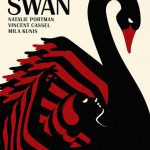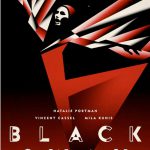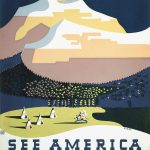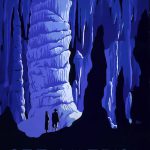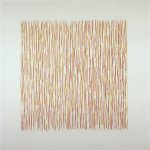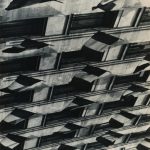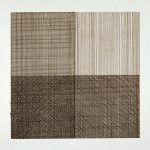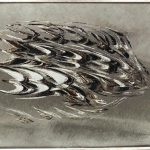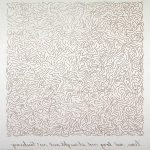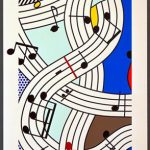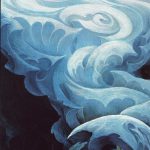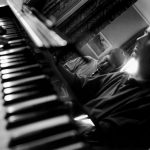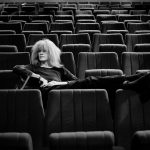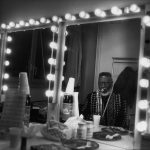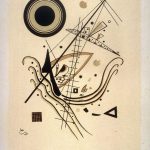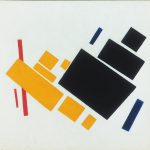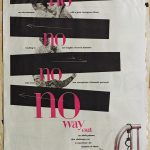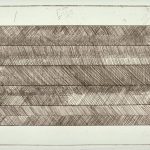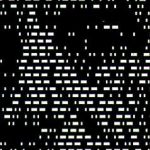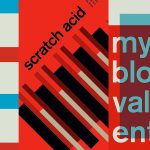September 20, 2018
Due this Class:
- Your final post (Phase 4: Deliver) for Project #1
- IMPORTANT NOTE: You will receive a grade and comments from the Professor on this post. If you do not create this post, you will not receive a grade for the project.
- Turn in your reworked inked compositions. They should be professionally presented with a protective tracing paper cover. (Demo: Protecting and submitting your work)
Materials Need for This Class:
- Sketchbook
- Pencils (wide range from 4h to 4B)
- A favorite song or piece of music that you like
- Headphones / Earbuds
Discussion (60 min)
The Elements: basic components used as part of any composition, independent of the medium.
- Line: An series of points, which has length and direction. It can be the connection between two points, the space between shapes, or the path of a moving point. A closed line creates a shape.
The Principles: basic assumptions that guide the design practice.
- Rhythm: Is a repeated pattern, such as what we hear in music. In different art forms, it can be a very complex interrelationship or a regular, steady beat.
- Repetition: Repeating a sequence; occurring more than a few times. In design, repetition can create visual consistency and a sense of unity.
- Pattern: Unbroken repetition, the repeating of an line, object or symbol.
- Variety: Visual rhythm is often punctuated with variations or changes in color, texture, or form. Creating variety is easy. Too much variety can lead to chaos and confusion for the viewer. A designer must effectively use pace and spacing to create rhythm and achieve unity in a composition.
- Monotony: Without variety or change, excessive repetition (or no repetition) can lead to uninteresting compositions.
References:
- Pattern and Rhythm in Nature
- Pattern and Rhythm in Art and Design:
- Credit: LaBoca
- Credit: LaBoca
- Barack Obama – Hope
- Works Projects Administration Poster
- Works Projects Administration Poster
- Navy Poster
- Guy Le Querrec
- Movie Poster
- Swiss Style
Everything is a Remix
Everything is a Remix on Vimeo
Field Trip Prep
- Listen to THE SENSES: DESCRIPTIVE AUDIO TOUR
- Choose one work in the exhibition that you can imagine most clearly, just by hearing the Curator describe it.
- In your sketchbook, write down what you imagine this experience will be like. Try drawing a picture of the work she is describing.
- On our Field Trip on Monday, we will compare your visualization of this work (based on the auditory explanation) with the in-person experience.
Lab: Project #2 | Sound Visualization Mashup
Phase 1: Discover
Listening and Drawing
- In your sketchbook, while listening to your favorite piece of music, draw the sounds that you hear.
- Imagine how the sounds would look if they were lines or shapes and consider how they relate to each other.
- Do you hear repeated patterns and an overall rhythm?
- Are some sounds rough or sharp and other smooth and flowing?
Writing
- Compose a minimum 2-paragraph description of the sounds you hear.
- Describe them in terms of pattern, line, shape, variety. Consider how some sounds repeat to create rhythm.
- Do any of these observations affect how you understand the meaning of the music or the intention of the composer/songwriter/artist?
Documentation
- Create a new blog post called Sound Visualizations: Phase 1.
- Add a link to the piece of music via YouTube, SoundCloud, or similar.
- Refine your writing and add it to the post.
- Include the hours that you worked on this part of the project.
Feedback
- Don’t forget to comment on at least 1 other student’s post.
Homework
Post Project #2: Phase 1 to the class blog
- Comment on at least 1 other student’s post.
Field Trip Prep:
- Listen to THE SENSES: DESCRIPTIVE AUDIO TOUR
- Choose one work in the exhibition that you can imagine most clearly, just by hearing the Curator describe it.
- In your sketchbook, write down what you imagine this experience will be like. Try drawing a picture of the work she is describing.
- On our Field Trip on Monday, we will compare your imaginings of this work from the audio recording with the real-life experience using all of our senses.
FIELD TRIP NEXT CLASS!
- We will be leaving from ENG1101 at 1pm. PLEASE DON’T BE LATE!
- If you are late, meet us at the Cooper Hewitt Design Museum. We will be there until 4pm.
- Bring your sketchbook and a pencil or pen to take notes.
Cooper Hewitt Design Museum
2 East 91st Street
(between 5th and Madison Avenues)
New York, New York 10128
